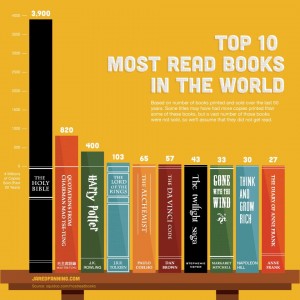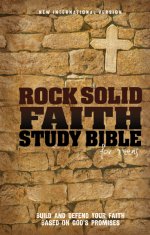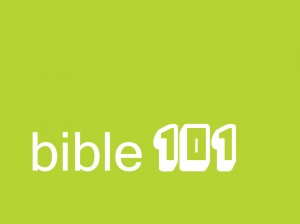The Essentials: Scripture
Sycamore Creek Church
August 21, 2016
Tom Arthur
Peace friends!
How ’bout them Tigers? Well, OK. Maybe they’re not doing as well as you might hope, but here’s a question for you: when it comes to the Tigers or any baseball game, what is essential? What do you absolutely have to have to play baseball? You need a ball, a bat, players, and a field. If you’ve got those four essentials you’ve got baseball. There are a lot of great things about baseball that aren’t essential. Dugouts. Uniforms. Lights. Scoreboard. None of these things are essential.
When it comes to our beliefs, there are likewise some things that are essential and other things that, while important, may not be so essential. We’re in a series called The Essentials and we’re exploring five essentials of Christian belief: Christ, Faith, Grace, Scripture, and Glory.
Once a year we do a “belief series.” We take four or five weeks to look at our beliefs or theology or doctrine. Why do beliefs matter? Beliefs matter because what you believe contributes significantly to how you live. If you believe in an angry God, you’ll live like God is out to get you. If you believe in an uninvolved and disinterested God, you’ll live like God doesn’t care what you do. If you believe in a loving God, you’ll live like you’re on God’s mission in this world.
This series was conceived by a conference that I went to here in Lansing back in 2013. It was called “Sola13” (check it out at www.sola13.com). It was put on by some of the more conservative and reformed churches in the Lansing area. Many big speakers came to Lansing to talk about the Christian faith over several days. People from all over the nation came here to hear them. I wasn’t able to go to every day of the series, but I did catch some of it. It got me thinking that I’d like to explore the same issues but from a slightly different perspective. Maybe a more “moderate” perspective.
The series was called “Sola” because it was built on five “Solas” from the Protestant Reformation in the 16th century. “Sola” is Latin for “only.” Here are the five Solas:
- (Sola) Christ Alone
- (Sola) Faith Alone
- (Sola) Grace Alone
- (Sola) Scripture Alone
- (Sola) God’s Glory Alone
Each of these Solas are a protest against certain beliefs or misunderstandings about the Catholic Church. Christ alone, not priests or sacraments (you don’t need priests or sacraments as a mediator to God). Grace alone, not merit (you don’t deserve and aren’t entitled to anything, especially from God). Faith alone, not works (you didn’t earn anything, especially your salvation). Scripture alone, not tradition (the Bible is enough without all the “traditions” of the Catholic Church). And lastly, God’s glory alone, not glory to the church or saints (you don’t worship saints, the church, etc.).
In this series I want to propose a “middle way.” I’d like to suggest that we understand “Sola” or “alone” as “Solus” or “primary.” Thus the five Solas become five primary beliefs or essentials.
- Primacy of Christ
- Primacy of Grace
- Primacy of Faith
- Primacy of Scripture
- Primacy of Glory
Scripture
Today we’re going to look at Sola Scripture or the Primacy of Scripture. Of all the “solas” Scripture alone is the one I wrestle with the most. What does it mean? Only scripture and not science? Only scripture and no other books? Only scripture by whose interpretation? Only scripture and check your brain at the door? Only scripture in what translation?
Growing up I was taught that scripture was inerrant. What I understood that to mean was that the Bible is never wrong. Well, as I’ve grown up and studied I’ve realized that those who believe in inerrancy have a more nuanced view than my childhood and teenage brain could fully understand. One theologian defines it this way:
The view that when all the facts become known, they will demonstrate that the Bible in its original autographs and correctly interpreted is entirely true and never false in all it affirms, whether that relates to doctrine or ethics or to the social, physical, or life sciences.
~Paul D Feinberg (Professor of Biblical and Systematic Theology, Trinity Evangelical Divinity School)
The verse that is usually used to defend this view is from Paul’s letter to his protégé, Timothy:
All scripture [is] inspired by God and [is] useful for teaching, for reproof, for correction, and for training in righteousness.
~2 Timothy 3:16 NRSV
I put the word “is” in brackets because when I began to study Greek, the original language Paul was writing in, I learned that the word “is” is implied. It’s not really there. So you can always ask, where should the “is” go? There is another place to put the “is” in this verse. One translation gives us a different way of understanding what Paul is saying:
Every scripture inspired of God [is] also profitable for teaching, for reproof, for correction, for instruction which is in righteousness.
~2 Timothy 3:16 ASV
Put the “is” in a slightly different place and the meaning changes, doesn’t it? So what do we believe about scripture? Perhaps the most succinct place is found in our Articles of Religion:
The Holy Scripture containeth all things necessary to salvation; so that whatsoever is not read therein, nor may be proved thereby, is not to be required of any [person] that it should be believed as an article of faith, or be thought requisite or necessary to salvation.
~Article V of The Articles of Religion of the Methodist Church (Book of Discipline of the United Methodist Church)
Notice it’s Article V. Four other things come before it: God, Jesus, Jesus’ resurrection, and the Holy Spirit. In contrast, The Baptist Faith and Message puts their belief about scripture in the number one spot. What should come first? Belief in God or belief in the Bible? Well, they’re very closely tied, but if I had to pick one, I’d go with belief in God first.
My View on Scripture has been in flux over the past ten years or so. If I were to rank the Solas I’d put Sola Scripture in the 5th place. That doesn’t mean I don’t deeply value scripture. I read it every morning. I read it multiple times a day. I’ve spent countless hours studying scripture. I trust it. And yet over the years I’ve found the whole thing pretty complicated. Amidst the complications, there are five things I’ve found that are helpful to know about the Bible. So in honor of its fifth-place rank, here are five things to know about the Bible:
1) Know the Weight
All scripture is inspired but not all scripture is equal. There was a time in my life where I would have stopped listening to someone who told me this. But then I read the Bible myself and I came across Jesus having this argument with the religious leaders of his day:
“Woe to you, scribes and Pharisees, hypocrites! For you tithe mint, dill, and cummin, and have neglected the weightier matters of the law: justice and mercy and faith. It is these you ought to have practiced without neglecting the others.
~Jesus (Matthew 23:23 NRSV)
Here’s the question: how do you determine “weight”? What is Jesus’ answer? Jesus says the weightiest things fall under the categories of justice, mercy and faith. So while he doesn’t neglect or throw out other things, he gives preference to these three essentials in the Bible. Does your own reading of the Bible and living of life focus primarily on justice, mercy, and faith? If you read the Bible like Jesus does, it will.
2) Know your Geometry
Yes, geometry. Or sorta. While studying John Wesley, the co-founder of the Methodist movement, I came across the “Wesleyan Quadrilateral.” A quadrilateral is a four-sided object. The four sides of the Wesleyan Quadrilateral are scripture, tradition, reason, and experience.
There’s an online series of videos called Chuck Knows Church. I think Chuck can probably explain the Wesleyan Quadrilateral in a more engaging and entertaining way that I can. So watch it:
If we go back to the baseball metaphor, I like to think of the primacy of scripture as the playing field. Tradition is the coaches and their theories of how to play the game on the field. Reason is the umpires and the rules of the game. And experience is like the stats of individual players and even teams. Coaches come and go. Umpires come and go. Stats come and go. But the game is always played on the field. The game always begins and ends on the field. It’s not played in the stands or outside the stadium. Christian belief and practice always begins and ends on the playing field of scripture.
3) Know Literature
I know. I’m stretching your brain right now. We were in geometry class just a moment ago and now we’re talking literature? Hang with me. Different kinds of books come with different kinds of expectations. Same thing is true about most of life. If you go to a baseball game expecting football, you’ll be sorely disappointed. If you go to the new Harry Potter movie expecting a documentary, you’ll be really confused. If you go to Jackie’s Diner expecting a BBQ place, you’ll miss all the great diner food they serve there. If you come to any particular book of the Bible with the wrong set of expectations, you’re going to get really confused.
The Bible is not one book. It is sixty-six books written by dozens of authors over thousands of years. It’s more like a library of books. Each of those books is a different genre or kind of literature. Each genre comes with its own set of expectations. Do you come to the Old Testament expecting a science book, or history or something else? I like to think of a book like Genesis as “family history.” It’s the stories that a family tells that define who the family is. For example, one of the stories my family always tells is about the time my grandma put a piece of pie in front of my grandpa. She went to scoop out some ice cream and when she turned back to his plate, the pie was gone! Now did it happen exactly like that? Probably not. But did he eat it fast? Yes. That’s the whole point. And it tells you something about my family and its history. Genesis is like that: family history. Leviticus, on the other hand, is ancient government law code. Very different than family history. The book of Psalms is like reading someone’s prayer journal. The book of Proverbs is wisdom. Wisdom is different than promise. Wisdom is what happens most of the time.
When it comes to the New Testament, are we reading journalistic reporting, apologetic debates, or something else? I think it’s helpful to think of the gospels, the books that tell the story of Jesus’ life, as painted portraits. Not photographic portraits, but painted portraits. Like a good painter, every gospel author has taken some artistic liberties with painting a portrait of Jesus. They all get the basics the same, but they each paint a slightly different picture. The “epistles” are like reading someone else’s mail. They were written by one person to another person in a particular context. Our context may be similar or it may be different. The book of Revelation is the one that people always want me to talk about. We did a whole series on it some time ago, but I think the book of Revelation is probably best understood as political cartoons. If you look at a contemporary political cartoon and you see an elephant and a donkey, you know that they’re talking about the Democratic and Republican parties. When you see the colors of red, white, and blue you know they’re talking about the USA. Revelation has all kinds of similar symbols that ancient people understood but we no longer understand. Look at a political cartoon from a hundred years ago and you have no idea what all the symbols mean. Multiple that by 2000 years and you’ve got the book of Revelation.
When you come to a particular book in the Bible you have to adjust your expectations depending on what kind of literature you’re reading.
4) Know the BIG Picture
Details matter less than the BIG picture. That’s the fourth thing to know about the Bible. The early Christian leaders called this the “analogy of faith.” Read the hard, difficult, or unclear scripture in light of the clear scripture. All interpretations must fit with the big picture/narrative of the Bible and Christian belief. Paul, the first missionary of the church and author of many of the “epistle” letters in the Bible, wrote to the church at Corinth saying:
For I handed on to you as of first importance what I in turn had received: that Christ died for our sins in accordance with the scriptures, and that he was buried, and that he was raised on the third day in accordance with the scriptures.
~Paul (1 Corinthians 15:3-4 NRSV)
Paul is giving us the big picture, the analogy of faith. A couple of hundred years later St. Augustine, a church leader said something similar:
Whoever, then, thinks that he understands the Holy Scriptures, or any part of them, but puts such an interpretation upon them as does not tend to build up this twofold love of God and our neighbor, does not yet understand them as he ought.
~St. Augustine (4th & 5th Century Church Leader)
Fit the details within the BIG picture. If you’re not sure about something, look at it from the perspective of the BIG picture. God created. We rebelled. God loved us. God loved us in many ways including a unique relationship with the ancient Hebrew people. God show us his love most fully in Jesus. Jesus taught us and showed us what love looks like. Jesus was executed but love won when he was raised from the dead. Jesus created a community of people to follow his way of love. That’s the BIG picture. Interpret everything else in the Bible in light of that BIG picture.
5) Know who to Trust
All of us come to reading the Bible with a basic disposition: trust or suspicion. If you always only read the Bible with suspicion, you’re going to miss something that you can only get when you approach the Bible with trust. The Bible is like a trusted mentor. It’s not that you always agree with your mentor. But you do trust a mentor. And when a mentor asks you to do something you’re not sure about, you’re willing to give it a try because you trust your mentor. I think about when I learned to ski. The ski instructor said that our instinct when we’re learning to ski is to lean back on the skis. But when you do this you lose control really quickly. You have to go against your instinct and lean forward, down the hill, to have the most control. When I finally began to really trust my ski instructor, I began to really figure out how to make those beautiful S-curves on the slopes. When you approach the Bible with trust, you try things you wouldn’t like or that don’t always make sense and you find that there’s a way you’re blessed in doing so. Psalm 1 says it this way:
Happy are those
who do not follow the advice of the wicked,
or take the path that sinners tread,
or sit in the seat of scoffers;
but their delight is in the law of the Lord,
and on his law they meditate day and night.
~Psalm 1:1-2 NRSV
When you have a trusted mentor you stay away from things that the mentor says aren’t good for you. You trust their warning. I had a friend who came over one night to try my sushi that I had just learned to make in a sushi-making class. He had never had sushi or wasabi. Wasabi is the spicy green paste usually served with sushi. He tried a little and really liked it. He thought, “A little is good, so a lot must be great.” He took a spoonful of wasabi and put it on top of a sushi. As all of us told him this was not a good idea, he ignored us and popped it in his mouth. Within seconds he jumped up from the table, ran to the bathroom, and proceeded to throw up his entire dinner. He didn’t trust us when we told him that a spoonful of wasabi wasn’t going to be good for him. When you trust what the Bible tells you, you find that you don’t have to eat the wasabi to know that a spoonful isn’t going to be good. The mentor is trustworthy. The mentor is trustworthy because God speaks through scripture. Does God still speak today through scripture? Absolutely. Will you give it try? Dedicate ten or fifteen minutes each day to reading the Bible or reading a devotional book about the Bible. You’ll find there a trustworthy mentor.
Here’s a prayer that I use from time to time to help my spirit open up to what God is going to say to me through Scripture:
Blessed Lord, who caused all holy Scriptures to be written for our learning: Grant us so to hear them, read, mark, learn, and inwardly digest them, that we may embrace and ever hold fast the blessed hope of everlasting life, which you have given us in our Savior Jesus Christ; who lives and reigns with you and the Holy Spirit, one God, for ever and ever. Amen.









Recent Comments